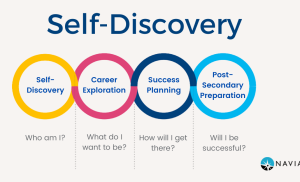How Can Goal Setting And Achievement Contribute To Stress Reduction?
Imagine a life devoid of constant worry and anxiety, where you have a clear sense of direction and purpose. This is precisely what goal setting and achievement can offer, as they have the power to alleviate stress and bring about a sense of fulfillment. By setting goals and taking steps towards accomplishing them, you not only gain a sense of control over your life but also experience a boost in self-confidence and motivation. In this article, we will explore the ways in which goal setting and achievement can contribute to stress reduction, ultimately leading to a more balanced and harmonious life. So, let’s embark on this journey together and unlock the power of the goals you’ve always dreamt of achieving.
Benefits of Goal Setting
Increased Focus and Clarity
Setting goals provides you with a clear direction and helps you stay focused on what you want to achieve. By setting specific objectives, you can prioritize your tasks and eliminate unnecessary distractions. With a defined target in mind, you will be able to channel your energy and efforts towards achieving that goal, enhancing your productivity and efficiency.
Enhanced Motivation and Commitment
When you set goals, you give yourself something to strive for, which fuels your motivation. The desire to achieve your goals pushes you to work harder, overcome obstacles, and stay committed to the task at hand. Setting challenging yet attainable goals encourages personal growth and allows you to experience a sense of accomplishment, further boosting your motivation.
Sense of Direction and Purpose
Goal setting provides you with a sense of direction and purpose in life. By identifying what is important to you, setting goals that align with your values and aspirations, and creating a roadmap to achieve them, you gain a sense of clarity about what you want to accomplish. Having a clear sense of direction instills a greater sense of purpose, making you more focused and determined to achieve your goals.
Reducing Stress through Goal Setting
Providing a Sense of Control
Setting goals gives you a sense of control over your life. When you have well-defined goals, you feel empowered to take charge and make decisions that align with your desired outcomes. This sense of control helps reduce stress by decreasing feelings of uncertainty and providing a roadmap to follow.
Creating Structure and Organization
Goal setting naturally leads to creating structure and organization in your life. When you have clear objectives, you can break them down into smaller tasks and create a plan or timeline to accomplish them. This structure brings order to your daily activities and reduces stress caused by feeling overwhelmed or disorganized.
Increasing Self-confidence and Self-esteem
Achieving your goals boosts your self-confidence and self-esteem. As you accomplish milestones and make progress towards your goals, you develop a belief in your abilities and potential. This increased self-confidence not only reduces stress but also empowers you to take on new challenges, broaden your horizons, and embrace opportunities for personal growth.

Improving Mental Health
Promoting Positive Thinking
Goal setting promotes Positive Thinking by focusing your attention on what you want to achieve rather than dwelling on negative thoughts or past failures. When you set positive and realistic goals, you cultivate an optimistic mindset and develop resilience in the face of adversity. This positive thinking contributes to better mental health and reduced stress levels.
Boosting Dopamine and Serotonin Levels
Accomplishing goals triggers the release of dopamine and serotonin, also known as the “feel-good” neurotransmitters. These chemicals play a crucial role in regulating mood, emotions, and overall mental well-being. By setting and achieving goals, you can experience increased levels of dopamine and serotonin, which can improve your mood, reduce stress, and promote better mental health.
Decreasing Anxiety and Depression
Goal setting has been shown to decrease anxiety and depression. When you have clear objectives and a roadmap to achieve them, you are less likely to feel overwhelmed and uncertain. By breaking down goals into manageable steps, you can tackle them one at a time, reducing stress, and preventing feelings of anxiety and depression.
Maintaining Physical Well-being
Encouraging Healthy Habits
Goal setting can motivate you to adopt and maintain healthy habits. Whether it’s setting a fitness goal, committing to a nutritious diet, or focusing on improving your overall well-being, having specific goals in these areas can provide the necessary motivation and accountability. By prioritizing physical health through goal setting, you can reduce stress and improve your overall quality of life.
Promoting Better Sleep Patterns
Setting goals related to sleep hygiene can significantly impact your overall well-being and stress levels. By establishing a bedtime routine, setting a consistent sleep schedule, and creating an environment conducive to restful sleep, you can improve the quality and quantity of your sleep. A good night’s sleep promotes physical recovery, mental clarity, and emotional resilience, all of which contribute to stress reduction.
Reducing the Risk of Chronic Illness
Goal setting can help reduce the risk of chronic illness by promoting behaviors that support overall health. By setting goals related to exercise, nutrition, and Stress Management, you can improve your physical fitness and strengthen your immune system. By focusing on preventive measures through goal setting, you can reduce the likelihood of developing chronic illnesses, minimizing stress associated with poor health.

Setting Realistic and Attainable Goals
Defining SMART Goals
When setting goals, it is important to make them SMART: Specific, Measurable, Achievable, Relevant, and Time-bound. Specific goals are well-defined and clearly outline what you want to achieve. Measurable goals have concrete criteria to assess progress and success. Achievable goals are realistic and within your capabilities. Relevant goals align with your values and aspirations. Time-bound goals have a set deadline, creating a sense of urgency and motivation.
Breaking Goals into Smaller Tasks
To make goals more manageable and attainable, it is essential to break them down into smaller tasks. Breaking down larger goals into actionable steps allows you to focus on one task at a time and track your progress effectively. This approach prevents overwhelm, provides a clear path forward, and boosts your confidence as you achieve each small milestone.
Tracking Progress and Celebrating Achievements
Tracking your progress along the way and celebrating achievements is crucial for maintaining motivation and feeling a sense of accomplishment. Use tools like a journal, planner, or digital tracking app to record your progress. Regularly review your progress, and celebrate milestones reached. This practice not only keeps you accountable but also provides a positive reinforcement that reduces stress and encourages you to continue striving towards your goals.
Creating a Balance in Life
Prioritizing and Managing Time
Goal setting helps you prioritize and manage your time effectively. By clearly defining your goals, you can identify tasks or activities that are most important and align with your objectives. This enables you to allocate your time accordingly, focusing on what truly matters and minimizing stress caused by feeling overwhelmed or pulled in multiple directions.
Avoiding Burnout and Overwhelm
Setting realistic goals and establishing boundaries helps prevent burnout and overwhelm. By recognizing your limitations and scheduling breaks, you can maintain a healthy work-life balance. Goal setting allows you to establish boundaries that protect your physical and mental well-being, reducing stress and supporting overall life satisfaction.
Balancing Work and Personal Life
Goal setting helps create a balance between work and personal life. By setting goals in both areas, you ensure that you dedicate time and attention to both aspects of your life. This balance promotes overall well-being, reduces stress caused by neglecting personal or professional needs, and fosters a sense of fulfillment in all areas of your life.

Building Resilience
Developing Coping Strategies
Goal setting aids in the development of coping strategies, which are essential for overcoming setbacks and challenges. By setting goals and encountering obstacles along the way, you learn to adapt, problem-solve, and develop effective coping mechanisms. This resilience-building process equips you with the skills necessary to navigate setbacks and reduces stress by instilling a belief in your ability to overcome obstacles.
Handling Setbacks and Challenges
Goal setting prepares you to handle setbacks and challenges effectively. By understanding that setbacks are a part of the journey, you develop a resilient mindset that allows you to bounce back quickly from failures or obstacles. Viewing setbacks as learning opportunities rather than failures enables you to stay focused, motivated, and less stressed during difficult times.
Learning from Failures
Goal setting encourages a growth mindset, promoting learning from failures. When you encounter setbacks or fall short of your goals, it provides an opportunity for self-reflection and growth. By analyzing what went wrong, identifying areas for improvement, and adjusting your approach, you can turn failures into valuable learning experiences. This ability to learn from failures builds resilience, reduces stress, and propels you forward towards future success.
Enhancing Interpersonal Relationships
Improved Communication and Collaboration
Goal setting can improve communication and collaboration in interpersonal relationships. By setting shared goals, such as in a professional setting or within a partnership, you create a sense of common purpose and align expectations. This shared vision fosters open and effective communication, enhances teamwork, and reduces misunderstandings or conflicts, leading to healthier and more fulfilling relationships.
Shared Goals and Support
When individuals in a relationship or group share common goals, they can provide support, encouragement, and accountability to each other. By having shared aspirations, you can motivate and inspire one another, resulting in increased commitment and accomplishment. This mutual support not only strengthens relationships but also reduces stress by knowing that you have a team backing you up.
Increased Empathy and Understanding
Goal setting can promote empathy and understanding in interpersonal relationships. By setting goals together or expressing individual goals, you gain insight into each other’s dreams, desires, and motivations. This understanding fosters empathy, deepens connections, and reduces stress by strengthening the emotional bond within relationships.
Adapting to Change
Promoting Flexibility and Adaptability
Setting goals enhances your ability to adapt to change. By maintaining a flexible mindset and setting goals that can be adjusted when necessary, you build resilience and become more agile in the face of unexpected circumstances. This adaptability reduces stress and allows you to embrace change as an opportunity for growth and development.
Managing Stress during Transitions
Goal setting provides stability and helps manage stress during times of transition. When going through significant life changes, setting goals can provide a sense of structure, purpose, and direction. Whether it’s starting a new job, moving to a new city, or experiencing a major life event, having goals allows you to focus on the positive aspects of change and navigate transitions with greater ease.
Embracing Opportunities for Growth
By setting goals, you create opportunities for personal growth and development. When you embrace these opportunities, you foster a growth mindset that encourages continuous learning and improvement. As you push yourself outside your comfort zone and strive to achieve your goals, you develop new skills, gain confidence, and expand your capabilities. This proactive approach to personal growth enhances your ability to adapt to change, reduces stress, and opens doors to new possibilities.
Long-Term Stress Management
Continued Goal Setting and Progress
Goal setting is an ongoing process that contributes to long-term stress management. As you achieve your goals, it is essential to set new ones to maintain a sense of purpose and momentum. Continuing to set and pursue goals ensures that you stay engaged, motivated, and focused on personal growth, reducing stress and promoting overall well-being.
Seeking Professional Support
In some cases, seeking professional support can be beneficial for long-term stress management. If you find yourself struggling to set or achieve goals, experiencing high levels of stress, or facing mental health challenges, reaching out to a therapist, counselor, or coach can provide guidance and support. These professionals can help you develop effective goal-setting strategies, manage stress, and enhance your overall well-being.
Wellness and Self-care Practices
Incorporating wellness and self-care practices into your goal setting can significantly contribute to long-term stress management. By setting goals related to self-care, such as practicing mindfulness, engaging in regular exercise, maintaining a healthy diet, or prioritizing leisure activities, you actively promote self-care and stress reduction. By investing in your physical and mental well-being, you build resilience, prevent burnout, and support long-term stress management.
In conclusion, goal setting and achievement offer numerous benefits that contribute to stress reduction and overall well-being. Whether it’s increasing focus and clarity, improving mental health, maintaining physical well-being, building resilience, enhancing interpersonal relationships, adapting to change, or pursuing long-term stress management, setting goals allows you to take control of your life, prioritize what matters most, and experience the satisfaction of accomplishing your aspirations. Embrace the power of goal setting, and watch how it positively impacts your life.

















